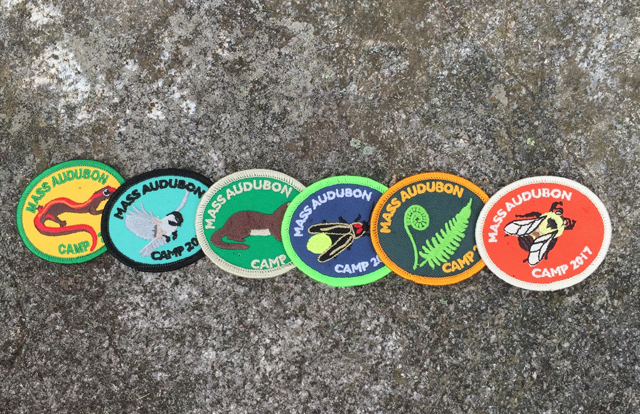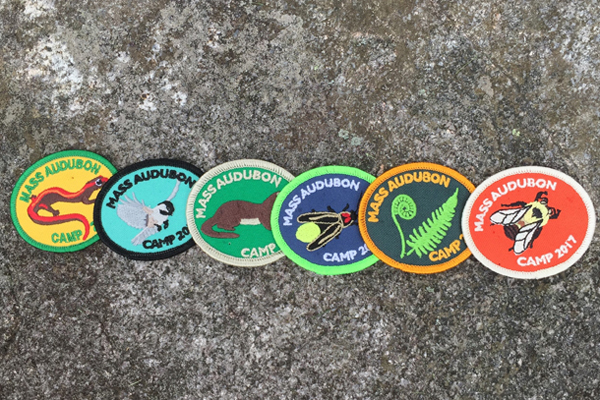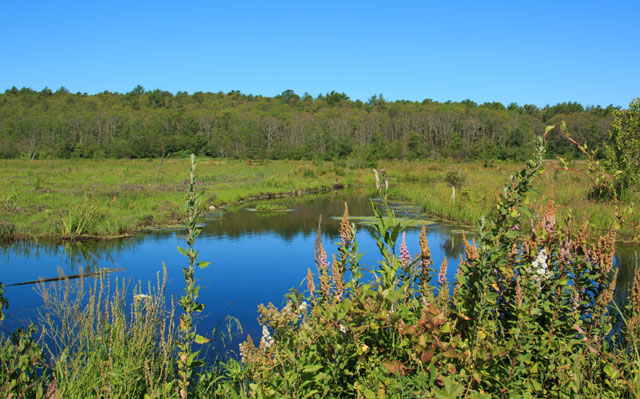Every year, campers at Mass Audubon’s 18 day camps and Wildwood, our overnight camp, receive a patch at the end of their session. These patches have featured everything from fireflies to fiddlehead ferns.

The last six years of camp patches.
This year’s patch shines a light on bees, but not just any bee. It’s the rusty patched bumble bee (Bombus affinis). This important pollinator that officially landed on America’s endangered species list. It’s the first time in our nation’s history that a bee species is under federal protection.
As recently as 30 years ago, this bumblebee was commonly found in a variety of habitats including prairies, woodlands, marshes, agricultural landscapes, and residential parks and gardens. Their precipitous decline started in the mid-1990s, and today they are very rarely found anywhere.
What happened to this once common bumblebee? Scientists cite a combination of impacts:
- introduced pathogens from contact with commercial bee colonies
- “neonicotinoid” insecticides (used widely on farms and in urban landscapes) that are absorbed by plants and can be present in pollen and nectar, making them toxic to bees
- habitat loss and degradation
At Mass Audubon, we’re protecting and maintaining old field habitats and designing pollinator gardens to support these bees and many other pollinators that live in the Commonwealth.
We’re also supporting state legislation, An Act to Protect Pollinator Habitat (S.451/H.2926), establishing a commission to improve pollinator health by increasing and enhancing native pollinator habitat, as well as other legislation to reduce pesticide use and establish official guidance for pollinator forage.
Take Action!
Want to help the rusty patched bumble bee and other pollinators?
- Learn more by watching the 19-minute stunning short film, A Ghost in the Making: Rusty-Patched Bumble Bee
- Get the buzz on other pollinators in Massachusetts.
- Help pollinators thrive by growing a pollinator garden (find one at a wildlife sanctuary for inspiration)
- Call or write your state legislators today and ask them to support our pollinator protection bill! You can let them know that pollinators like bees, as well as bats, birds, and butterflies, are experiencing rapid population declines, and this bill (S.451 and H.2926) would help to protect and promote pollinators’ health and habitat. Find your legislators >



